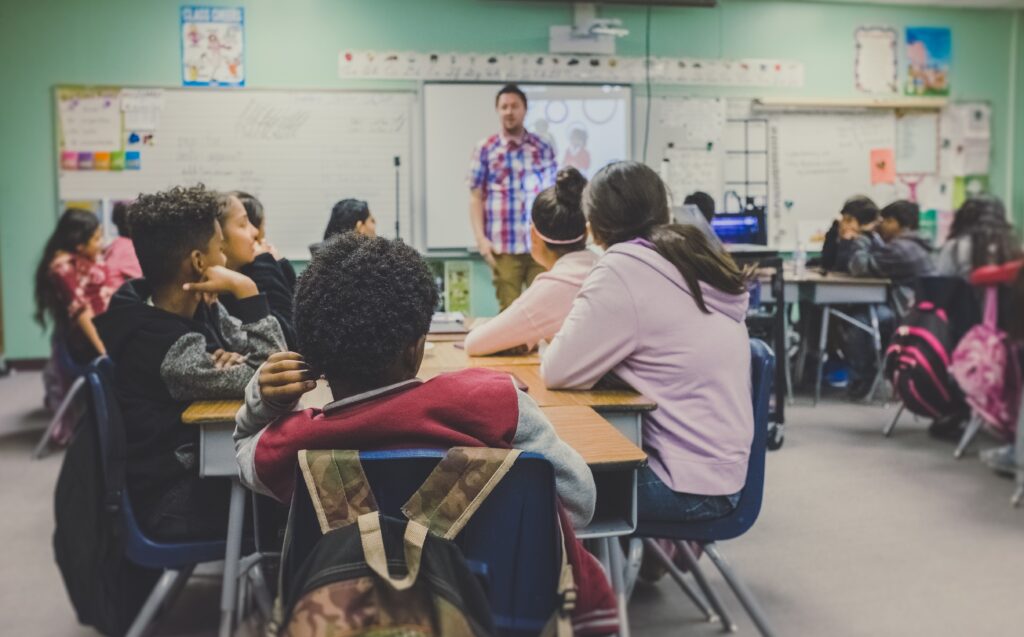Damaging Diction – School Choice Opposition and Propaganda

As much as any issue in recent years, K-12 public education funding has suffered from misinformation and propaganda. The abuse of the English language by opponents of reform has so flustered proponents, that the latter have completely abandoned certain words and phrases.
At the end of the day though, you can’t go wrong with “parental prerogative” and “freedom.” That’s the entire, simple premise behind “school choice.”
Public schools are funded largely based on where you live. The property taxes you pay go to your geographically-based independent school district (ISD). The state and the federal government kick in a portion, but where you go is determined by your address.
This is a large driver of inequities.
It goes without saying that some neighborhoods and communities are more affluent than others. That results in an imbalance of property tax collections between ISDs. Some kids therefore have more resources than others with which to further learning.
Remedies have been tried, perhaps most notably the so-called Robinhood law of 1993. That basically “recaptured” excess property tax revenue from wealthier ISDs and redirected them to poorer ones.
And yet here we are, three decades later with standards and outcomes generally regarded to (still) be on the decline. Hence, the continued call for reform. Enter “school choice,” or “vouchers,” or “educational savings accounts (ESAs),” or whatever demonized moniker you prefer.
In any case, if a taxing jurisdiction collects $1 million for public education for example, and there are 100 students living within that jurisdiction, each would get $10K for tuition to go to whichever school they and their guardians choose.
And therein lies the rub: using “public dollars” for “private schools.”
Advocates for government/public sector activism tend to quickly forget where those funds came from: productive citizens who actually earned and saved them in the first place. Once they are taken and pushed through the bureaucracy, voila; “public dollars.”
Somewhere, Saul Goodman nods in approval.
From there, much depends on whether or not you believe in equality of opportunity (EoO). Without question, children are the most vulnerable demographic. If anyone personifies the EoO ideal, it’s them. Hence, the generally broad support for publicly-funded education.
Public schools are another story. There is a difference.
If lack of funds was the main driver behind the suboptimal state of K-12, the solution would be easy. However, enough citizens understand that you can’t keep throwing good money after bad and expect different results.
What is lacking is the same thing that is absent from bumbling government operations: competition and the threat of going out of business.
By and large, schools don’t have to compete for customers. They have a captive audience. When providers of services have to joust with competitors though, they have more incentive to deliver a superior good.
In addition to a deadweight anchor, property taxes also serve as a socioeconomic wedge. People with means migrate to wealthier areas in part because of surrounding schools perceived to be of greater quality. Those without are left behind.
Even though that breeds some opposition from those entrenched in the more well-resourced areas, hypocritical politicians and bureaucrats are the biggest enemy of equality and progress.
The landscape is replete with those who oppose and vote against greater choice, but yet send their own kids to private schools. It’s the height of obscenity and condescension to leverage political status to keep the less-powerful down.
This abuse of power and crippling of educational opportunities could start to be remedied by instituting the proper, natural course: fully empowering parents, families and their children to chart their own destiny. Precisely no one has a more vested interest in their future.
That’s where “accountability” starts and ends.
===
If you believe in empowering parents/yourselves with more choice in K-12 education … leveling the playing field between the wealthy and not-so-wealthy in the name of equity … now is a the time to MAKE YOUR VOICE HEARD! Our Texas Legislature is currently in a special session to address exactly this issue.
The Senate agrees with you, and has passed it. Contact your representative in the House and urge them to join the right side of history, and approve it as well. Urge them to vote to give ALL parents equal opportunity to choose the best school for their children.
If you don’t know who represents you, find them here. If you do, here are their contacts.